Maintain your Hyundai through regular maintenance every 7,500 miles or 6 months. Tasks include oil changes, tire rotations, brake inspections, and fluid checks. Follow the manufacturer’s guidelines for timing belt and spark plug replacements. Check the owner’s manual for specific recommendations to ensure optimal vehicle performance.
Following the maintenance schedule is key for longevity, safety, and efficient operations. Learn more about specific maintenance tasks, oil change intervals, air filter and tire maintenance, spark plug replacements, and other essential routine tasks to keep your Hyundai in top condition.
What is the recommended maintenance schedule for a Hyundai?
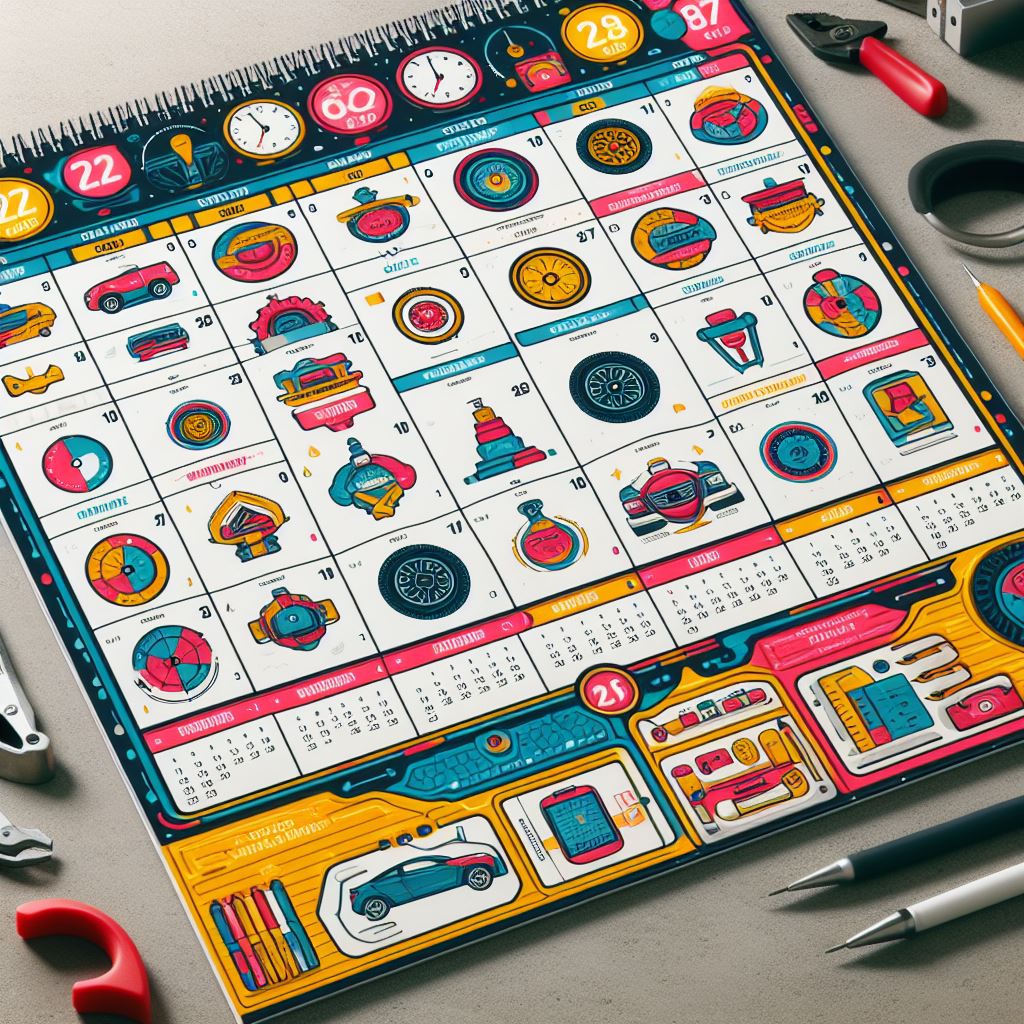
The recommended maintenance schedule for a Hyundai includes regular tasks and intervals to ensure optimal performance and longevity of your vehicle. By following this schedule, you can prevent potential issues and maintain your Hyundai’s reliability over time.
Hyundai recommends regular maintenance every 7,500 miles or 6 months, including oil changes, tire rotations, brake inspections, and fluid checks. It is also important to follow the manufacturer’s guidelines for timing belt replacements, spark plug changes, and other scheduled services to keep your Hyundai in top condition. Be sure to consult your owner’s manual for specific recommendations based on your vehicle’s make and model.
Overview of Hyundais recommended maintenance intervals
Highlighting the importance of regular maintenance, Hyundai recommends specific intervals for servicing your vehicle to ensure optimal performance and longevity. Here is an overview of Hyundai’s recommended maintenance schedule for popular models like the Sonata and Elantra in Canada.
| Service Task | Interval |
|---|---|
| Oil Change | Every 6,000-7,500 km |
| Tire Rotation | Every 10,000-12,000 km |
| Brake Inspection | Every 20,000 km |
Following Hyundai’s maintenance schedule, as outlined in the Hyundai maintenance schedule PDF, is crucial to keep your vehicle running smoothly.
Explanation of the importance of following a maintenance schedule
To maintain the optimal performance and longevity of your Hyundai vehicle, following to the recommended maintenance schedule is imperative. Following the Hyundai service schedule ensures that your car receives essential check-ups and repairs at the right intervals, preventing potential issues from escalating and leading to costly repairs down the line.
Additionally, sticking to the maintenance schedule can help maintain your vehicle’s resale value and warranty coverage. Hyundai also offers complimentary maintenance for a certain period, covering specific services to keep your car in top condition.
Specific maintenance tasks and their recommended frequencies
Regular maintenance tasks are essential for ensuring the longevity and optimal performance of your Hyundai vehicle. Following the Hyundai maintenance schedule is crucial to keep your car running smoothly.
For the Hyundai Tucson, it is recommended to have regular oil changes every 5,000 to 7,500 miles and brake inspections every 20,000 miles.
The Hyundai Sonata requires oil changes every 7,500 miles and air filter replacements every 15,000 miles.
In the case of the Hyundai Elantra, oil changes are advised every 7,500 miles, with tire rotations every 7,500 to 10,000 miles.
For the Hyundai Santa Fe, it is recommended to have oil changes every 5,000 to 7,500 miles and brake inspections every 20,000 miles to ensure optimal performance and safety.
How often should you change the oil in a Hyundai?
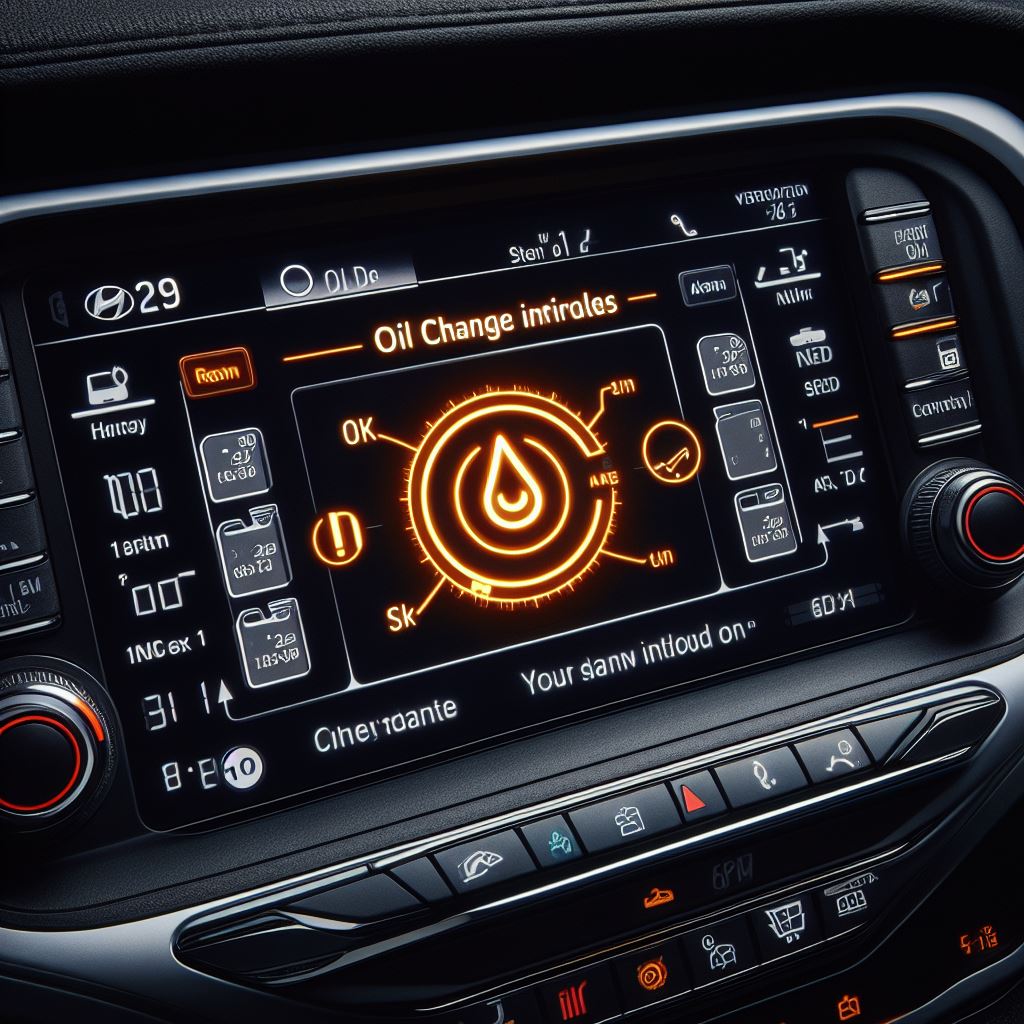
Hyundai recommends changing the oil in your vehicle every 3,000 to 5,000 miles, or every 6 months, whichever comes first.
Regular oil changes are essential for keeping your Hyundai’s engine running smoothly and efficiently.
Be sure to check your oil levels regularly and use the recommended oil type for best results.
Importance of regular oil changes for engine health
Ensuring proper maintenance of your Hyundai’s engine involves adhering to a recommended oil change schedule. Regular oil changes are vital for the health and longevity of your engine.
By following the Hyundai maintenance plan outlined in the service schedule PDF or taking advantage of Hyundai complimentary maintenance when offered, you can keep your engine running smoothly. Neglecting oil changes can lead to a buildup of dirt and debris, causing increased friction and wear on engine components.
This could result in poor performance, decreased fuel efficiency, and potentially costly repairs down the line. To avoid these issues, it’s crucial to understand the importance of regular oil changes and incorporate them into your Hyundai’s routine maintenance schedule.
Recommended oil change intervals for different driving conditions
For optimal performance of your Hyundai, it is crucial to adhere to the recommended intervals for oil changes, which are tailored to accommodate various driving conditions. It is crucial to follow the service schedule outlined in the maintenance schedule to ensure the longevity of your vehicle’s engine. Below is a table detailing the recommended oil change intervals based on different driving conditions:
| Driving Conditions | Recommended Intervals |
|---|---|
| Normal | Every 5,000 – 7,500 miles |
| Severe | Every 3,000 – 5,000 miles |
| Heavy | Every 2,000 – 3,000 miles |
| Stop-and-go traffic | Every 3,000 – 5,000 miles |
Tips for checking oil levels and choosing the right oil for a Hyundai
When maintaining your Hyundai, understanding how to check oil levels and select the appropriate oil is key to ensuring optimal performance and longevity for your vehicle.
Here are some essential tips for Hyundai oil maintenance:
- Regularly check oil levels by using the dipstick to ensure it falls within the recommended range.
- Follow the Hyundai oil selection guide to choose the right oil type for your specific model.
- Follow the manufacturer’s recommended frequency for changing your Hyundai’s oil, taking into account your driving habits.
- Consider Hyundai oil viscosity recommendations to match the climate conditions you typically drive in.
- Consult your owner’s manual for detailed Hyundai oil checking tips to keep your engine running smoothly.
When should you replace the air filter in a Hyundai?
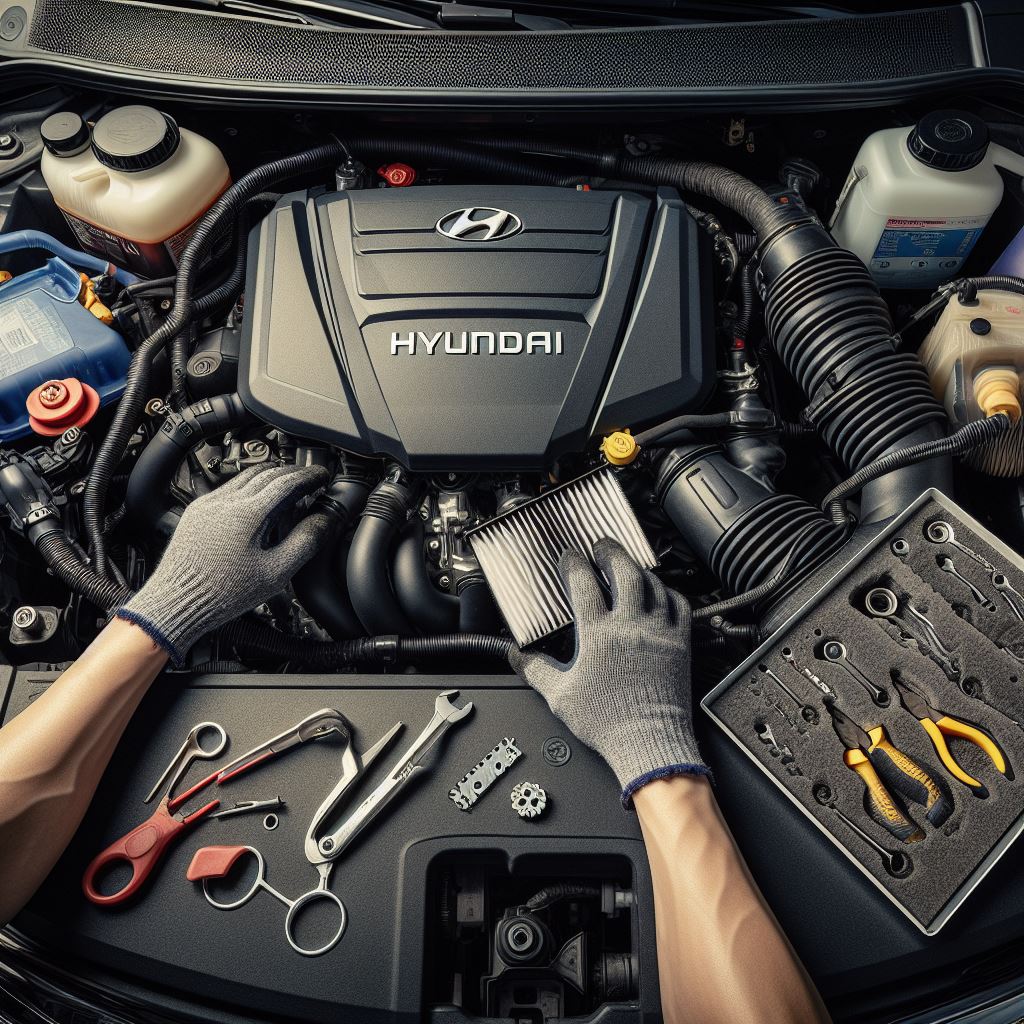
Replace the air filter in your Hyundai every 12,000 to 15,000 miles to maintain optimal engine performance.
Look for signs like reduced acceleration or increased fuel consumption as indicators for replacement.
Importance of a clean air filter for engine performance
Ensuring optimal engine performance in a Hyundai necessitates regular replacement of the air filter. The air filter plays a crucial role in maintaining a clean airflow into the engine, preventing dirt, dust, and debris from entering the system.
A clogged or dirty air filter can restrict the flow of air to the engine, leading to decreased fuel efficiency, reduced horsepower, and overall poor performance. As part of the Hyundai maintenance schedule, it is recommended to check and replace the air filter at regular intervals to ensure that the engine is receiving clean air for combustion.
Signs that indicate a need for air filter replacement
Regular inspection of the air filter in your Hyundai is essential to ensure optimal engine performance. Signs that indicate a need for air filter replacement in your Hyundai include:
- Decreased acceleration and power.
- Reduced fuel efficiency.
- Unusual engine sounds or vibrations.
- Dirty or clogged air filter.
- Check engine light illuminates.
Regularly checking for these signs can help maintain your Hyundai’s engine health and performance.
For more detailed information on when to replace the air filter according to the Hyundai maintenance schedule, refer to the Hyundai service schedule UK or specific model service schedules such as the Hyundai Tucson service schedule pdf, Hyundai Elantra service schedule pdf, or Hyundai Santa Fe service schedule pdf.
Recommended intervals for replacing the air filter in a Hyundai
Wondering about the optimal timing for replacing the air filter in your Hyundai to maintain peak engine performance? Following the Hyundai maintenance schedule is crucial to ensure your vehicle operates efficiently. Depending on your Hyundai model like the Palisade, Ioniq, or Santa Cruz, the recommended intervals for air filter replacement may vary.
Hyundai Canada maintenance schedule suggests inspecting and replacing the air filter every 12,000 to 15,000 miles or at least once a year for optimal performance. Keeping up with this maintenance task not only improves fuel efficiency but also protects your engine from dirt and debris.
What are the recommended tire maintenance tasks for a Hyundai?
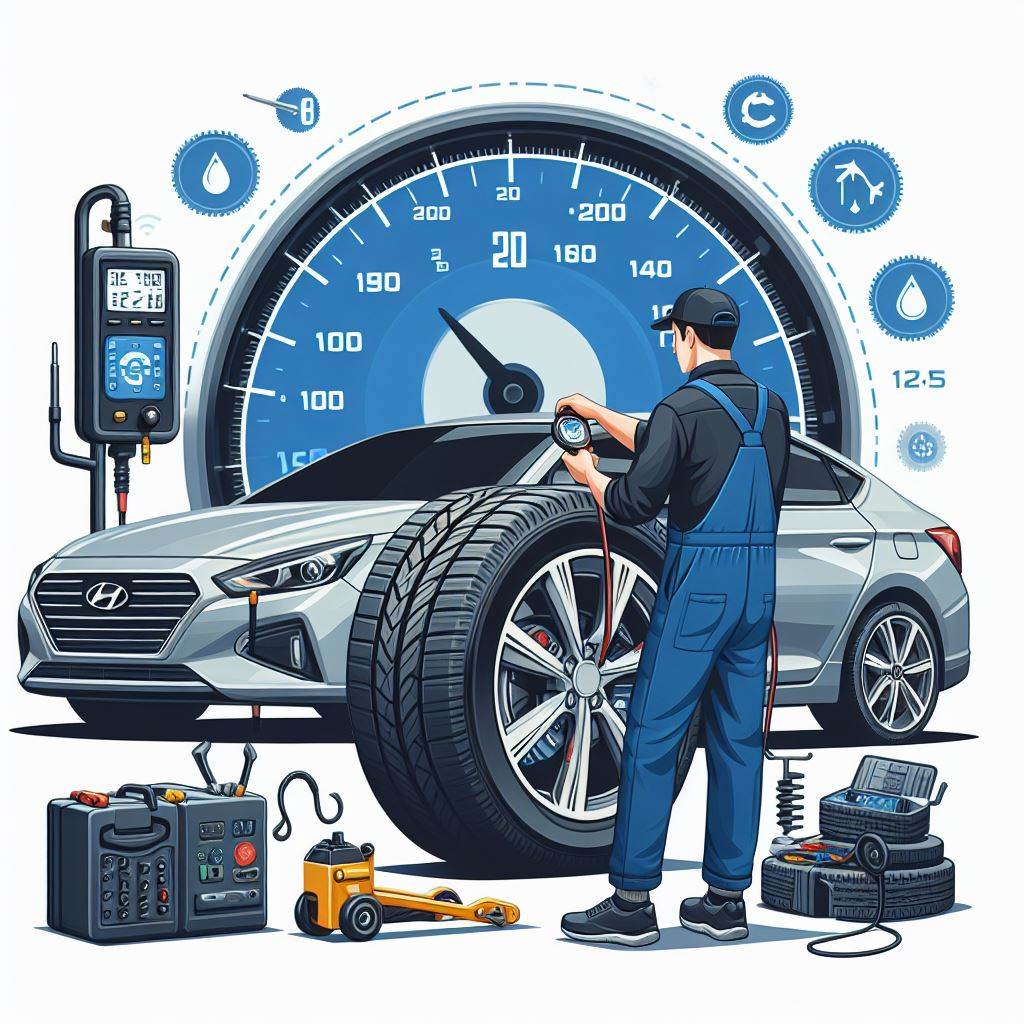
Proper tire maintenance is crucial for the safety and performance of your Hyundai. To ensure your tires are in top condition, maintaining the recommended tire pressure levels is crucial. Additionally, regularly checking tire tread depth and alignment can help prolong the lifespan of your tires.
- Importance of proper tire maintenance for safety and performance
- Recommended tire pressure for a Hyundai
- Tips for checking tire tread depth
- Tips for checking tire alignment
Importance of proper tire maintenance for safety and performance
Ensuring optimal tire maintenance is essential for maximizing safety and performance in your Hyundai vehicle. Regularly checking tire tread depth, alignment, and balance is crucial for safe driving.
Maintaining the recommended tire pressure helps improve fuel efficiency, handling, and overall longevity of the tires. Inspecting for any signs of damage or wear, such as cracks or bulges, is important for preventing potential blowouts or accidents on the road.
Rotating tires at the recommended intervals promotes even wear and extends the lifespan of the tires. Proper tire maintenance not only enhances safety but also ensures a smoother and more enjoyable driving experience in your Hyundai.
Recommended tire pressure for a Hyundai
For a Hyundai vehicle, maintaining the recommended tire pressure is crucial for optimal performance and safety on the road. The manufacturer typically provides the recommended tire pressure in the owner’s manual or on a sticker located on the driver’s side door jamb.
Keeping your Hyundai’s tires inflated to the correct pressure helps ensure even tire wear, proper handling, fuel efficiency, and overall safety. It is important to check the tire pressure regularly, especially before long trips or when carrying heavy loads.
Overinflated or underinflated tires can lead to decreased traction, reduced braking capabilities, and potential blowouts. By following the recommended tire pressure guidelines for your Hyundai, you can help maintain a smooth and safe driving experience.
Tips for checking tire tread depth and alignment
Maintaining the recommended tire pressure for your Hyundai is just one aspect of comprehensive tire maintenance; regularly checking tire tread depth and alignment is also crucial for optimal performance and safety on the road. To ensure your tires are in top condition, here are some essential tips:
- Use the Penny Test: Insert a penny into the tread with Lincoln’s head facing down. If you can see the top of Lincoln’s head, it’s time to replace the tire.
- Inspect for Uneven Wear: Check for signs of uneven wear patterns which can indicate misalignment or other issues.
- Check Alignment: Misaligned tires can lead to poor handling and premature wear. Get your alignment checked regularly.
- Look for Bulges or Blisters: These can be signs of internal damage and may lead to a blowout if not addressed.
- Rotate Tires: Regularly rotating your tires helps ensure even wear and extends their lifespan.
What Does the Hyundai Maintenance Schedule Include and How Does It Relate to Regular Servicing?
The Hyundai maintenance schedule is designed to keep your vehicle running smoothly. The hyundai service frequency suggestions outline when to perform key maintenance tasks like oil changes, tire rotations, and brake inspections. By following these recommendations, you can help ensure that your Hyundai stays in top condition for years to come.
How often should you replace the spark plugs in a Hyundai?
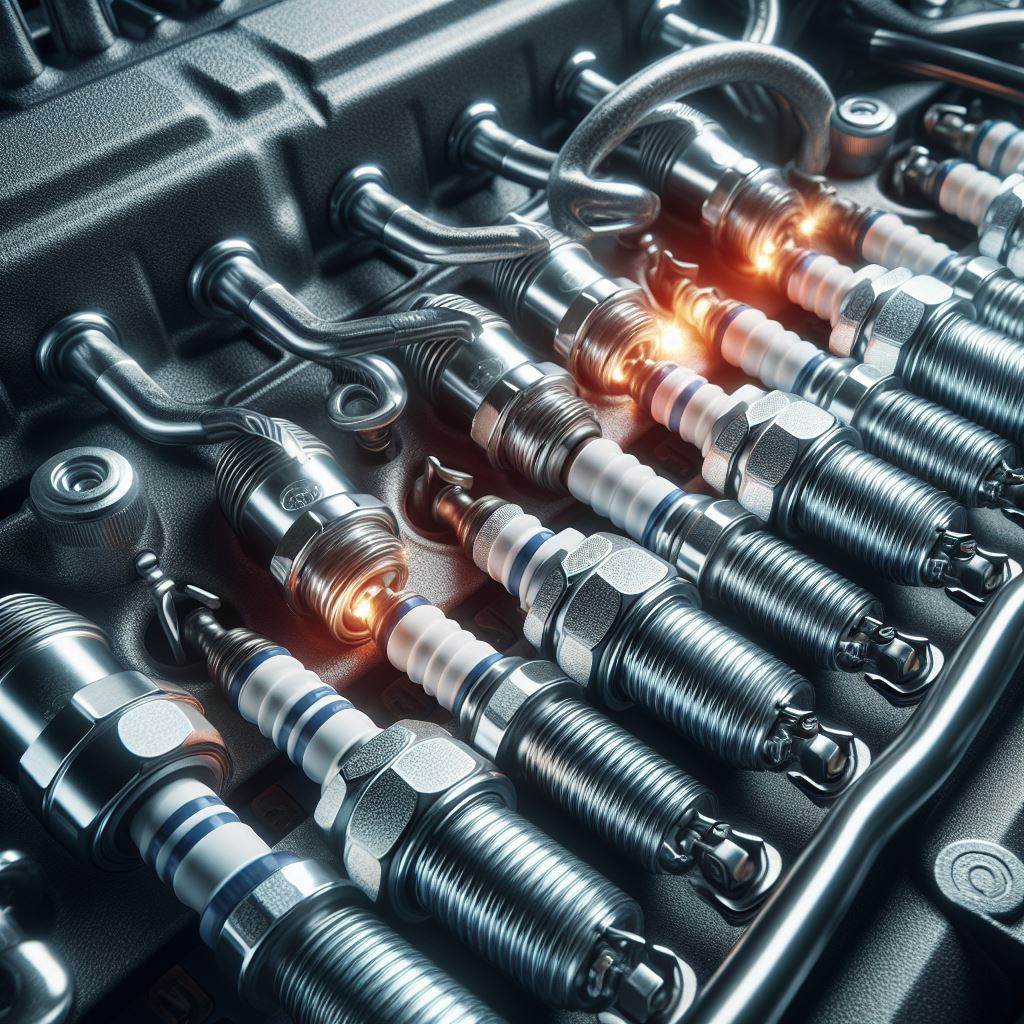
Replace the spark plugs in your Hyundai every 30,000 to 60,000 miles to maintain optimal engine performance.
Signs such as rough idling or difficulty starting the engine indicate the need for spark plug replacement.
Always refer to your owner’s manual for specific guidelines.
Importance of spark plug maintenance for engine efficiency
Ensuring timely replacement of spark plugs in your Hyundai is crucial for maintaining optimal engine efficiency. Spark plugs play a vital role in igniting the air-fuel mixture within the engine cylinders. Over time, spark plugs can wear out, leading to issues such as misfires, reduced fuel efficiency, and poor engine performance.
By following Hyundai’s recommended maintenance schedule for spark plug replacement, typically every 30,000 to 50,000 miles depending on the model, you can ensure that your engine continues to run smoothly and efficiently. Neglecting spark plug maintenance can result in decreased power, rough idling, and even potential damage to other engine components.
Therefore, staying proactive with spark plug replacements is key to keeping your Hyundai in top condition.
Signs that indicate a need for spark plug replacement
When your Hyundai’s spark plugs show signs of wear or malfunction, it may be time to consider a replacement to maintain optimal engine performance and efficiency. Here are some signs that indicate a need for spark plug replacement:
- Rough idling or misfiring
- Difficulty starting the engine
- Decreased fuel efficiency
- Engine surging or hesitation
- Engine stalling
If you notice any of these signs, it is advisable to have your spark plugs inspected and replaced if necessary to ensure your Hyundai continues to run smoothly. Regularly monitoring the condition of your spark plugs can help prevent more serious issues and keep your engine performing at its best.
Recommended intervals for replacing spark plugs in a Hyundai
Replacing spark plugs in a Hyundai should be done at recommended intervals to maintain optimal engine performance and efficiency. Typically, spark plugs in a Hyundai should be replaced every 30,000 to 60,000 miles, depending on the model and the type of spark plugs used.
Following the manufacturer’s recommended maintenance schedule is crucial to ensure that the engine operates at its best. Neglecting spark plug replacement can lead to issues such as misfiring, poor fuel economy, and difficulty starting the engine.
What other routine maintenance tasks should be performed on a Hyundai?
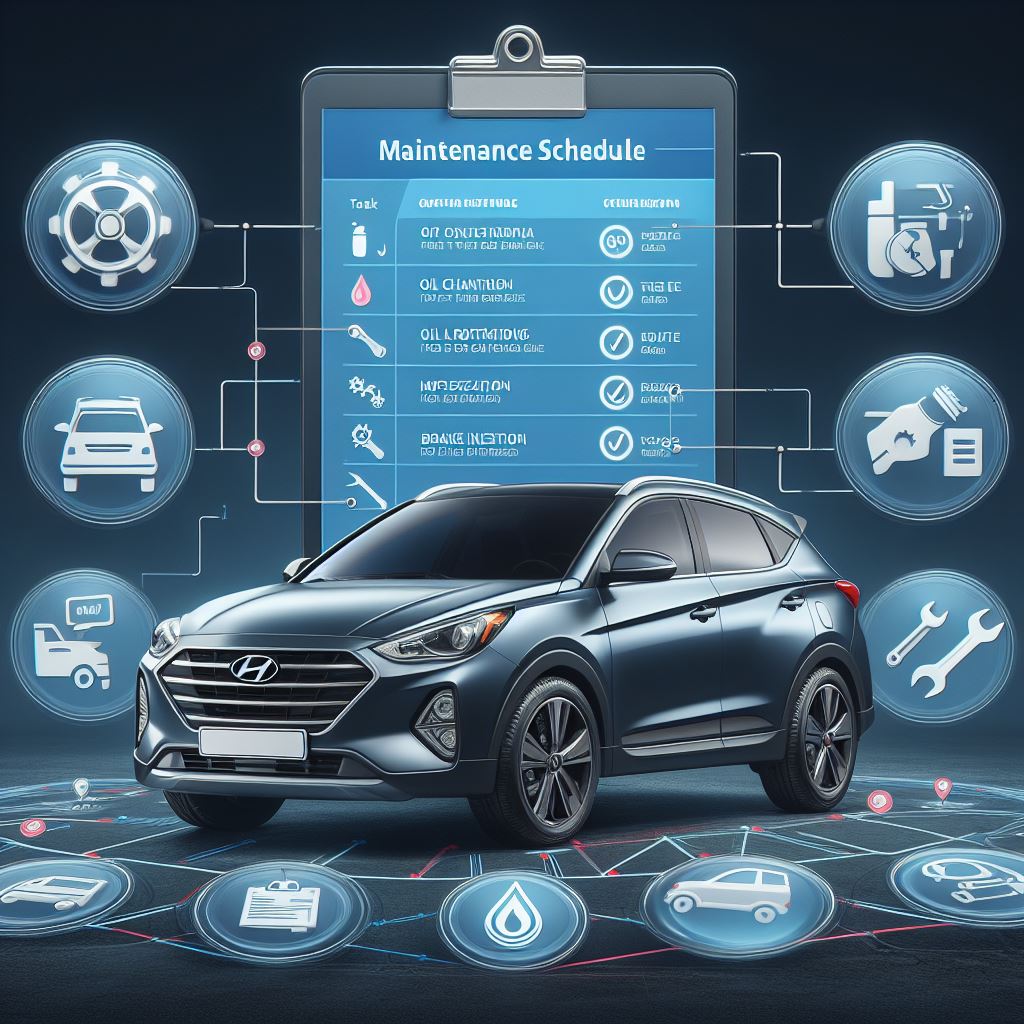
When it comes to maintaining your Hyundai, there are several key tasks beyond spark plug replacements that deserve attention.
From regular brake inspections to checking and topping up essential fluids, these routine maintenance tasks play a crucial role in keeping your vehicle running smoothly.
Staying proactive with these maintenance routines can not only ensure optimal performance but also contribute to the overall longevity of your Hyundai.
Overview of additional maintenance tasks such as brake inspections, fluid checks, and battery maintenance
Regular maintenance tasks for your Hyundai, beyond the standard services, include brake inspections, fluid checks, and battery maintenance to ensure optimal performance and longevity of your vehicle.
Brake inspections are crucial for safety, as they help detect any wear or damage to the braking system.
Fluid checks, including oil, coolant, and transmission fluid, are vital to keep your Hyundai running smoothly and prevent potential issues. Regularly checking and topping up fluids can prevent costly repairs in the future.
Additionally, maintaining your battery by cleaning terminals, checking for corrosion, and ensuring it is secured properly can enhance its lifespan and prevent unexpected breakdowns.
Importance of staying up-to-date on routine maintenance for the longevity of the vehicle
To maintain the optimal performance and longevity of your Hyundai, it is essential to follow the comprehensive routine maintenance schedule that includes tasks such as fluid replacements, tire rotations, and filter changes.
Regular oil changes are crucial to keep the engine running smoothly and prevent wear and tear. Additionally, brake inspections are necessary to ensure your vehicle’s safety on the road.
Checking and replacing the air filter can improve fuel efficiency and engine performance. Keeping the tires properly inflated and rotated extends their lifespan and enhances handling.
Lastly, periodic inspections of the belts, hoses, and spark plugs can prevent unexpected breakdowns and costly repairs. By staying up-to-date on these routine maintenance tasks, you can enjoy a reliable and long-lasting Hyundai.
Tips for scheduling and keeping track of maintenance tasks
Keeping a detailed record of maintenance tasks is essential for ensuring the optimal performance and longevity of your Hyundai vehicle. In addition to regular oil changes and tire rotations, there are other routine maintenance tasks that should be performed to keep your Hyundai in top condition:
- Check and replace the air filter as needed to maintain engine efficiency.
- Inspect the brake system regularly for wear and tear, ensuring safe braking performance.
- Keep the cooling system in check by flushing and refilling the coolant at recommended intervals.
- Regularly inspect and replace worn-out windshield wipers for clear visibility during rainy conditions.
- Don’t forget to schedule regular inspections of the suspension system to ensure a smooth and comfortable ride.
Wrapping Up
In conclusion, following the recommended maintenance schedule for a Hyundai is essential to ensure the longevity and performance of the vehicle.
Regular tasks such as changing the oil, replacing the air filter, maintaining tires, and replacing spark plugs are important to keep the Hyundai running smoothly.
By staying on top of routine maintenance, Hyundai owners can prevent costly repairs and maintain the overall health of their vehicle.
